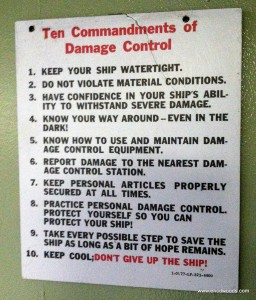 There was nothing they could do, the consultants had said. The ship was sinking. It was time to bail. So they put a FOR SALE sign in front of the church building. As a last-ditch effort they did a survey of the community. The bottom line read, “There is no ministry to be done in this location. Recommendation: Sell.”
There was nothing they could do, the consultants had said. The ship was sinking. It was time to bail. So they put a FOR SALE sign in front of the church building. As a last-ditch effort they did a survey of the community. The bottom line read, “There is no ministry to be done in this location. Recommendation: Sell.”
I’m not pointing fingers, but I have thought about those words for many hours—especially in light of the fact that we filled that little building past capacity many times in the years that follows. It’s the story of many churches, large and small, organizations and families. The state of decline had surpassed the belief of its members in their ability to revive it.
The final four in the Navy’s Ten Commandments of Damage Control, provide a solution: personal responsibility.
7. Keep personal articles properly secured at all times.
We’ve all got stuff we’ve brought along on the journey—baggage, things we would never let go of. But the health and survival of any organization requires us to be able to stow them properly. These items, left loose in our lives, can derail our focus, trip up others, and distract us from our primary agenda to keep our ship afloat.
8. Practice personal damage control. Protect yourself so you can protect your ship!
There’s a reason the flight attendant tells you to put your mask on first before you assist others. It’s easy in crisis to stretch ourselves thin: focusing only on the needs of those around us, working long hours, eating poorly, and neglecting time in the Scriptures.
The attention to our own life, health, and spiritual condition, and maintaining those in balance will put us in a position to be of the most benefit to the ship we’re trying to save.
9. Take every possible step to save the ship as long as a bit of hope remains.
Hope is a powerful motivator. But too often our glass-half-empty mentality throws hope overboard long before it jumps. By discarding hope, we end up with the Sinking Ship Syndrome. It’s the cause of death for many organizations—even ones without a fatal condition.
When others perceive that hope is lost, that the ship is sinking, they bail. Sinking Ship Syndrome causes them to stop giving, stop working as hard, stop volunteering, and stop sharing the story with others. The antidote to SSS is hope. As long as you can keep hope on board, you’re sailing. Once it’s gone, your sinking.
10. Keep cool; don’t give up the ship!
The second greatest enemy—next to losing hope—is panic. Even in the warmest weather, the ocean can be very cold. The salt water is poison to a thirsty sailor lost at sea. The sun is treacherous. No matter how bad it looks on the ship, it’s worse where the sharks are circling in the water below.
 Understanding the strength of your organization and knowing how to leverage the people and resources within it are useless if you give up the ship. You are most useful on board, sharing your own gifts, skills and abilities with the church, organization and people you love.
Understanding the strength of your organization and knowing how to leverage the people and resources within it are useless if you give up the ship. You are most useful on board, sharing your own gifts, skills and abilities with the church, organization and people you love.
What are you doing personally to keep the organization you love afloat?